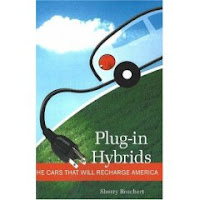Canary in the Coal Mine
Canary in the Coal Mine
December 13, 2008 (NewEnergyNews)
Anne B. Butterfield
A canary flies into an edifice of boldface type with various facts about coal, then falls splat to the ground. This is on the website of the Reality campaign which has been televising ads about the nonexistence of “clean coal”. The signature bird has an “x” for an eye to suggest, no doubt, being banged upside the head.
We get it: our reality is the canary in the coal mine.
Reality is also taking a beating from politicians representing us here in Colorado.
Last week, our Senator Ken Salazar and his brother Congressman John Salazar made reassuring remarks about the future of coal to the mining people of Craig up in Moffat County. Through Commissioner Tom Gray, the county offered a public outcry about how, with all the new Democrats in power in Washington, renewable energy was going to knock the stuffing out of coal’s domination in the electric power business – and that they in turn would “suffer”.
It is hard to see how an industry fueling half the nation’s electricity supply might suffer anytime soon, but if it does, the moral atrocity of mountaintop removal in Appalachia should end first. The people of Craig seem to be jumping to conclusions, with themselves mostly in mind.
Let’s talk about suffering. Polar bears are already drowning and starving as the sea ice they need to survive disappears. And small islands around the globe are predicted to be swamped soon by seas rising from global warming, triggered by atmospheric carbon levels as low as 400 parts per million. Our current level is 385 ppm; at 2ppm gain each year; that means less than ten years until islands like the Maldives become uninhabitable. When extreme weather renders coastal zones around the world uninhabitable, as happened in New Orleans, twice the population of the United States can face suffering. Consider the suffering when oceans become more acidic by absorbing CO2, with coral reefs and fisheries continuing to die off.
Let’s hope that the good people of Craig will think of suffering globally as they consider their own.
Because of the grim link between burning coal and the climate crisis, John Salazar reassured Moffat County by saying he wanted to make sure the federal government fully funds “clean coal” technology, which would inject captured, compressed CO2 miles underground. This is the “clean coal” technical system that is used at no power plant yet in the United States. It’s safe to say it won’t be broadly deployed soon enough to address the warming crisis or be much help to coal miners’ prospects.
It is ironic that John Salazar spoke bravely for clean coal, because just last month, he wrote to Governor Ritter about the well-founded panic of the people of Huerfano County where extraction of coal bed methane has led to explosions and water contamination. Until ordered to stop last year, the Petroglyph Company was pumping out ground water to get at the methane, which in turn seeped into wells and water lines. The seepage continues. John Salazar needs to reflect that the crisis in Walsenburg (and everywhere that new gas drilling has led to a rash of public health complaints) is what communities might face if injection of compressed CO2 is tried broadly. There are always mishaps when messing with geology, and when CO2 gets loose in concentrations it is toxic and lethal.
The Salazars’ assurances about coal’s long run viability through “clean coal” are in line with the contributions they have taken from the industry – over $90,000 for Ken the Senator, and $28,000 for John the Representative. While their totals are less than the worst, they are more than many senators’ from bigger coal states. The Udall brothers’ takes are $13,000 for incoming Senator Mark Udall, and $6500 for Representative Tom Udall. Campaign funds from the coal lobby can be tracked at Follow the Coal Money.
Emily Dickinson said; “Hope is the thing in feathers that perches in the soul.” If reality can be featured as a feathered being that is knocked senseless with an x for its eye, it can also seize on terrific, healing outcomes, flying to new heights. Surely our nation can decide that when it comes to coal it should no longer be simply burned, and burned away -- instead it should be transformed into steel and oh so many wind turbines.
Break aways:
When extreme weather renders coastal zones around the world uninhabitable, as happened in New Orleans, twice the population of the United States can face suffering.
It is hard to see how an industry fueling half the nation’s electricity supply might suffer anytime soon, but if it does, the moral atrocity of mountaintop removal in Appalachia should be first. The people of Craig seem to be jumping ahead fast, and with only themselves in mind.












 Plug-in Hybrids, The Cars That Will Recharge America
Plug-in Hybrids, The Cars That Will Recharge America Oil On The Brain
Oil On The Brain